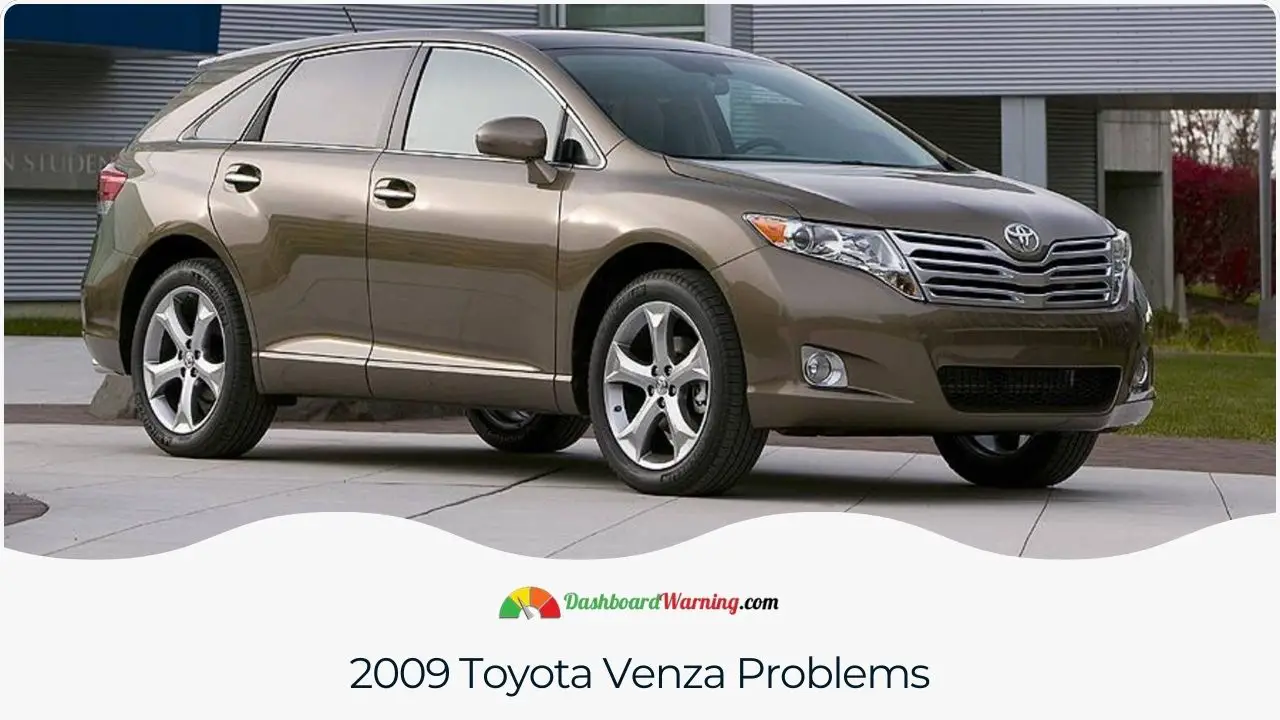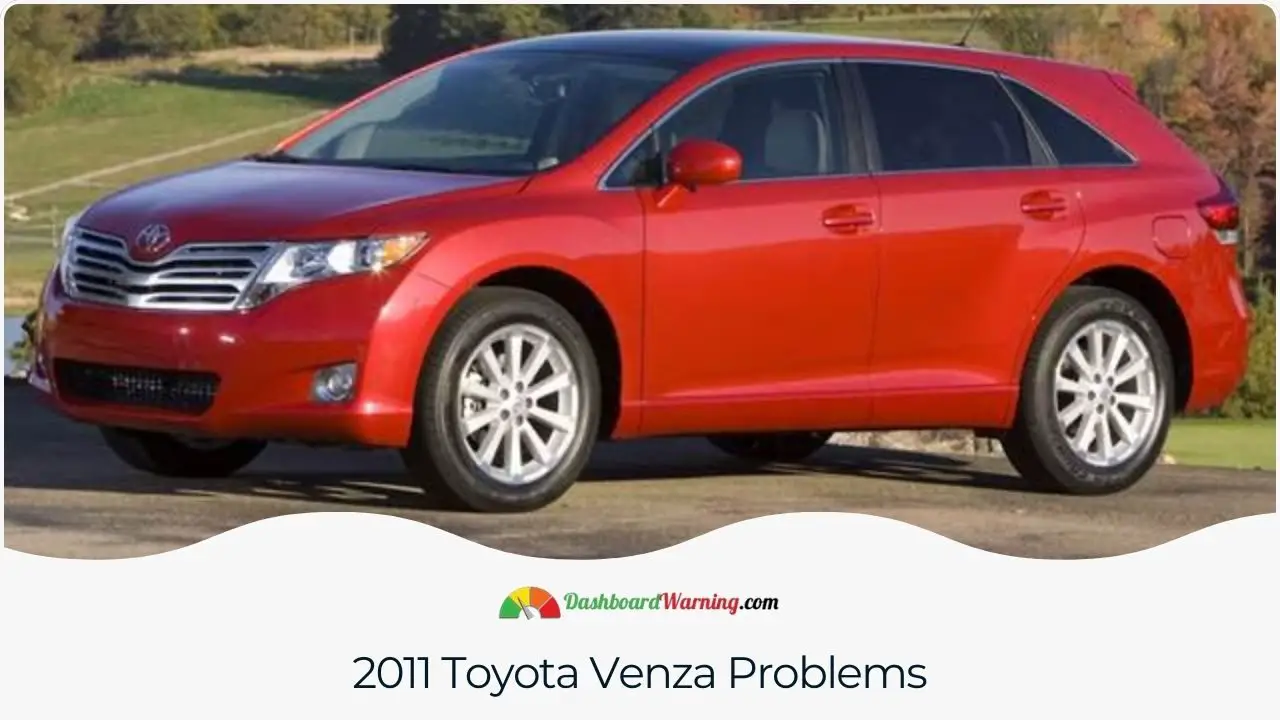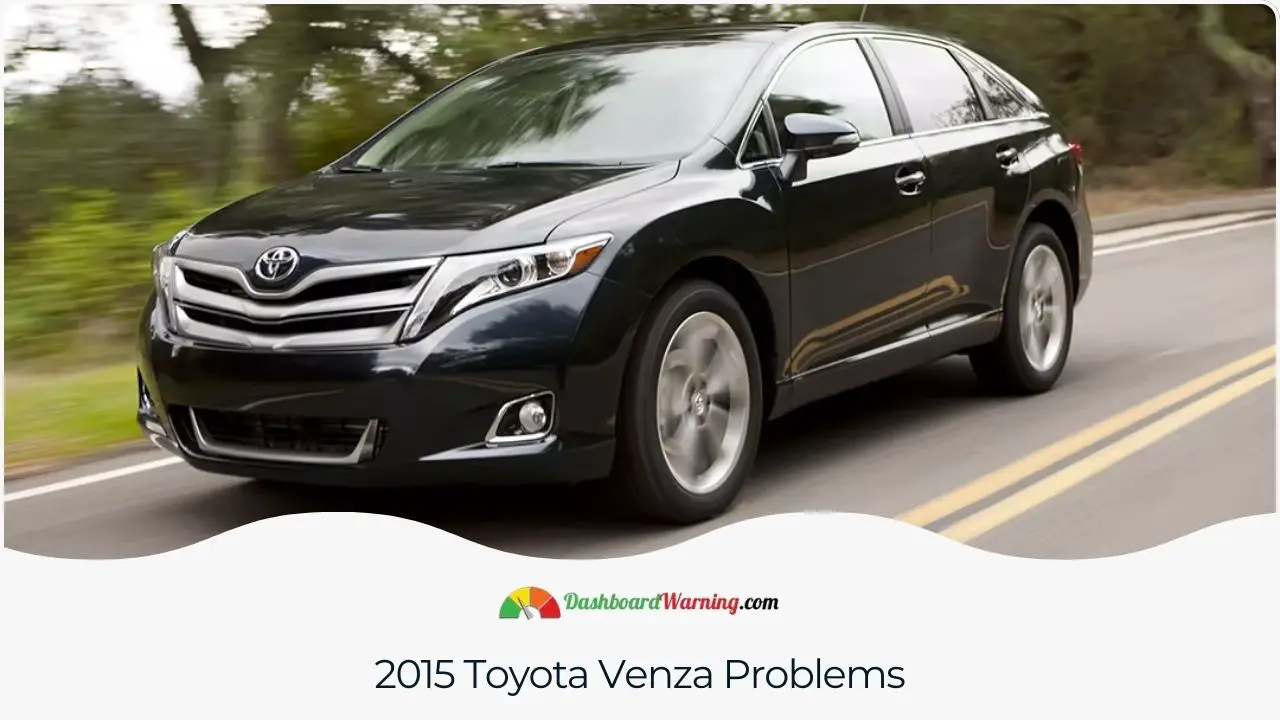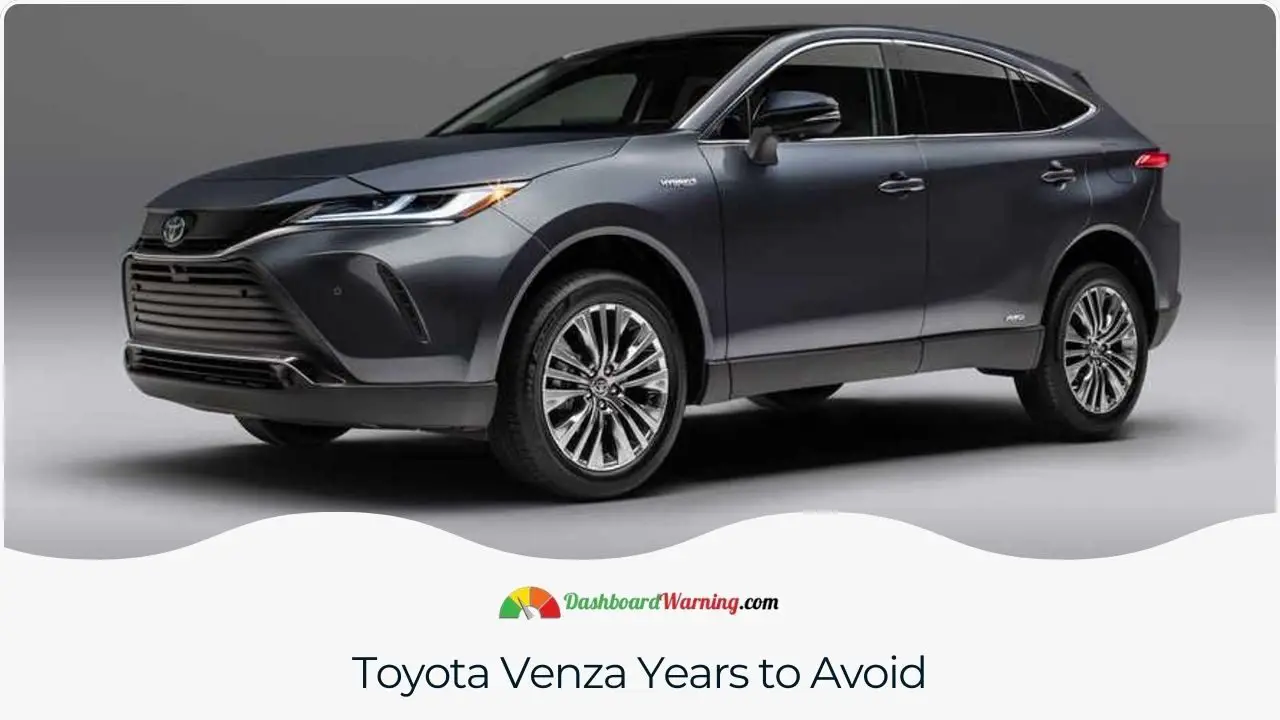The Toyota Venza possesses distinctive attributes to captivate potential users. It embarked on its journey in 2009, extending its presence in Canada until 2015 and in the USA until 2016 before undergoing a revival in 2021.
Its favorable maintenance and repair cost profile makes it an enticing choice for those searching for pre-owned SUVs. Nonetheless, certain models within the lineup fell short of users' expectations, marred by several issues. Hence, a discerning approach is warranted when contemplating a purchase, especially considering the Toyota Venza years to avoid.
Specifically, 2009, 2011, and 2015 should be cautiously approached due to prevalent concerns encompassing steering, power, airbags, and comfort. These are part of the Toyota Venza years to avoid.
A comprehensive exploration of these troublesome years and their associated predicaments will be undertaken in the forthcoming discourse. Furthermore, insights into the years that offer a more favorable ownership experience will be provided. The aim is to equip readers with the knowledge essential for making informed decisions when considering a Toyota Venza purchase, particularly avoiding the Toyota Venza years.
🚀Recommended article: Toyota Sienna Model Years To Avoid
What Year Toyota Venza To Avoid?
Since its inception, the Toyota Venza has diligently addressed its shortcomings, but certain iterations still garnered a substantial share of discontent from their owners. As a result, the following years should be approached with caution:
- 2009 Toyota Venza
- 2011 Toyota Venza
- 2015 Toyota Venza
Within this spectrum, 2009 emerged as the most problematic year for the Toyota Venza, amassing the highest volume of grievances. Additionally, some individuals found the 2013 model inadvisable due to the exorbitant repair expenses associated with its issues.
Several factors contribute to the inadvisability of these years, each deserving scrutiny.
Reasons to Avoid These Toyota Venza Years
2009 Toyota Venza Problems

The 2009 model, marking the inception of the Venza, was plagued by a slew of grievances in its inaugural year. As reported by several websites, this year bore the brunt of 41 user complaints, with a predominant focus on steering issues.
Moreover, interior accessories and comfort concerns further marred the driving experience.
Steering Predicaments:
A significant proportion of users grappled with grave steering wheel issues. During turns, owners encountered erratic behavior, manifesting as wandering, drifting, whining, and even rattling in the vehicle's steering.
Rattling proved a pervasive issue, particularly when traversing speed bumps, necessitating potentially costly repairs exceeding $2000. This problem chiefly surfaced once the vehicle had accumulated 64,000 miles on the odometer, with potentially severe safety implications.
Hence, vigilance is warranted in monitoring these steering-related challenges.
Additional Challenges:
Apart from steering woes, the bulk of complaints revolved around interior accessories. Common issues encompassed dashboard metal distortion, sun visor detachment, seat discomfort, and a malfunctioning auxiliary jack.
Furthermore, grievances extended to engine knocking, problems with exterior accessories, and electrical complications. Transmission failure, while not a common occurrence, entailed substantial repair costs.
2011 Toyota Venza Problems

The 2011 Toyota Venza, on the other hand, endured many issues that led to its recall on six separate occasions by the National Highway Traffic Safety Administration. A vehicle recall signifies that the automobile has failed to meet minimum safety standards, making it imperative to exercise caution when considering this particular model for your safety.
The primary concern centered around airbags. Additionally, there were grievances regarding uncomfortable seating, malfunctioning brake lights, and powertrain issues. Furthermore, users expressed dissatisfaction with the overall driving experience compared to more refined Highlanders.
Airbag Troubles:
Users reported that the airbag wires were susceptible to premature wear, resulting in damage to the sensor and, consequently, airbag failure. This posed a substantial safety risk in the event of a collision.
Driveshaft Complications:
The front right driveshaft emerged as a recurrent issue, leading to multiple recalls. Complaints indicated that the driveshaft was prone to breaking, attributed to inadequate heat treatment.
Unexplained Power Loss:
Another noteworthy issue was the abrupt loss of power without any preceding warning signs. Such occurrences could significantly diminish the driving experience, prompting vehicle safety concerns.
⚡️Another article: Toyota Matrix Years To Avoid
2015 Toyota Venza Problems

Unfortunately, the final year of production for the Toyota Venza, 2015, did not escape many issues. Complaints spanned various equipment malfunctions, ranking brake problems as the second most prevalent concern. Additionally, discomfort arising from the headrest, malfunctioning CD or navigation systems, and other grievances earned this year a spot on the list of troubled models. However, some sources suggest this year presents an attractive option when considering a used purchase.
Braking Challenges:
Brake-related issues loomed large in the 2015 Toyota Venza model. Numerous owners cited recurring problems with brake pads and rotors, necessitating repeated repairs and replacements.
Comfort Issues:
Numerous complaints centered around the comfort of this vehicle, with taller individuals (over 5'2") finding the headrest design uncomfortable, resulting in back and neck discomfort. Furthermore, the front sliding sunroof was prone to unexpected and frequent shattering. Additionally, various amenities, such as the CD player and navigation system, exhibited malfunctions, adding to owner frustration.
In addition to these issues, problems related to internal accessories, including mold formation in HVAC units and frequent wear and tear of the soy wire coat, featured prominently in user complaints.
Which Toyota Venza Years are Available to Buy?
With the knowledge of years to avoid firmly established, it is equally crucial to recognize the years that shine amidst the Venza lineup. While all years, excluding the troubled ones, offer a degree of reliability, certain years garner superior reviews.
Models available for safe purchase for the Toyota Venza include the following:
- 2010 Toyota Venza
- 2012 Toyota Venza
- 2013 Toyota Venza
- 2014 Toyota Venza
The 2010 model is an exemplary choice for prospective buyers, boasting an appealing design, commendable fuel efficiency, and a distinctive tall wagon body style. Comfortable seating and a quiet cabin enhance the 2012 model's appeal.
Notably, the 2013 model exhibits minimal user complaints, securing a favorable rating. The 2014 model enjoys the highest rating, surpassing competitors in its category.
While these years are not entirely devoid of issues, they present fewer challenges than the troubled models. Furthermore, the 2021 model, introduced more recently, demonstrates promising performance and can also warrant consideration.
⚡️Another article: Toyota Prius Master Warning Light
In Conclusion
When embarking on the quest to acquire a pre-owned vehicle, it is imperative to steer clear of models afflicted by persistent issues. Investing in years fraught with problems can result in significant financial burdens.
Now armed with an understanding of the best and worst years of the Toyota Venza, potential buyers can confidently navigate their options. However, prudence dictates that factors beyond model year, such as electrical condition and mileage, be considered when making a well-informed decision.
In summary, the wisdom gained here equips prospective Toyota Venza owners with the knowledge to discern the models most deserving of their investment and those best left untouched.
Was this page helpful?


More important content about Toyota
Toyota C-HR Years To Avoid
C1201 Code Toyota and Lexus | How Do I Fix?
Toyota Sienna Years To Avoid and Common Problems
Toyota Matrix Years To Avoid
Scion TC Years To Avoid - 5 Worst Years
Tips and Advice
Porsche Cayenne Years To Avoid
Subaru Legacy Years To Avoid - 5 Worst Years
Pt Cruiser Years To Avoid
Use 5w30 instead of 0w20 - Advantages and Disadvantages
Tractor Dashboard Symbols And Meanings
Suzuki Sx4 Years To Avoid - 5 Worst Years